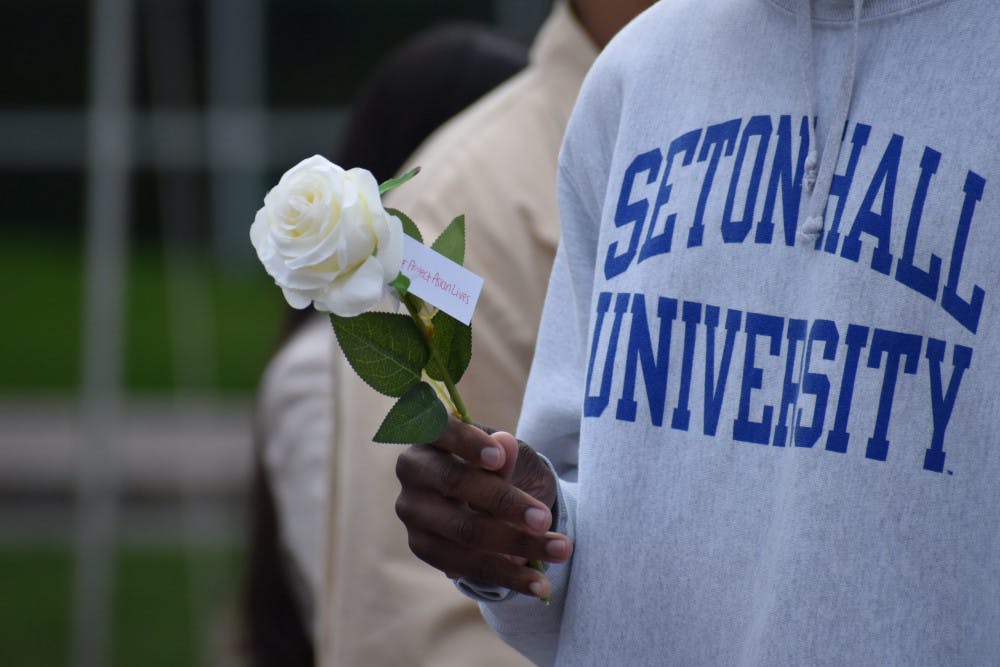Dozens of community members gathered on the University Green last Friday night for a vigil to recognize past and present anti-Asian violence, which has swept the nation over the last year in the wake of the coronavirus pandemic.
According to a report from the Center for the Study of Hate and Extremism, anti-Asian hate crimes surged in 2020 by almost 150% in major U.S. cities.
In March, Attorney General Gurbir Grewal released preliminary data on bias incidents for 2020 in New Jersey, which showed a 45% overall increase in bias incidents reported to law enforcement in the state, and a 74% increase in anti-Asian incidents.

The vigil, which sought to bring to light the rise in anti-Asian hate, was independently organized by students Mio Bayon, Danielle Vo, Katrina “KC” Toledo, Frank Mabalatan and Brittany Chin in partnership with Seton Hall’s Office of Student Engagement. Upon arrival, attendees were presented with plastic roses adorned with white tags inscribed with the phrase “Protect Asian Lives” to hold during the event.
Interim Vice President for Mission and Ministry, Father Colin Kay, opened the vigil by leading a moment of silence for victims of injustice and violence.
Surrounding students gathered by the University Seal were posters of headlines stretching as far back as 1850, which told the stories of racist sentiments and acts targeted at Asians in the United States throughout history. The presentation included a headline for the six Asian women killed in March by a white gunman who targeted three different Atlanta-area spas, igniting a conversation around everyday racism and bigotry aimed at the Asian community.
“Asian American hate and violence has been deeply rooted in our society,” Mabalatan, a senior political science major, said as he addressed the crowd. “We are blamed for events that are out of our control and are used as scapegoats for the failure of American society. Our parents came for an American dream but ended up in a nightmare filled with prejudice, fear and racism.”
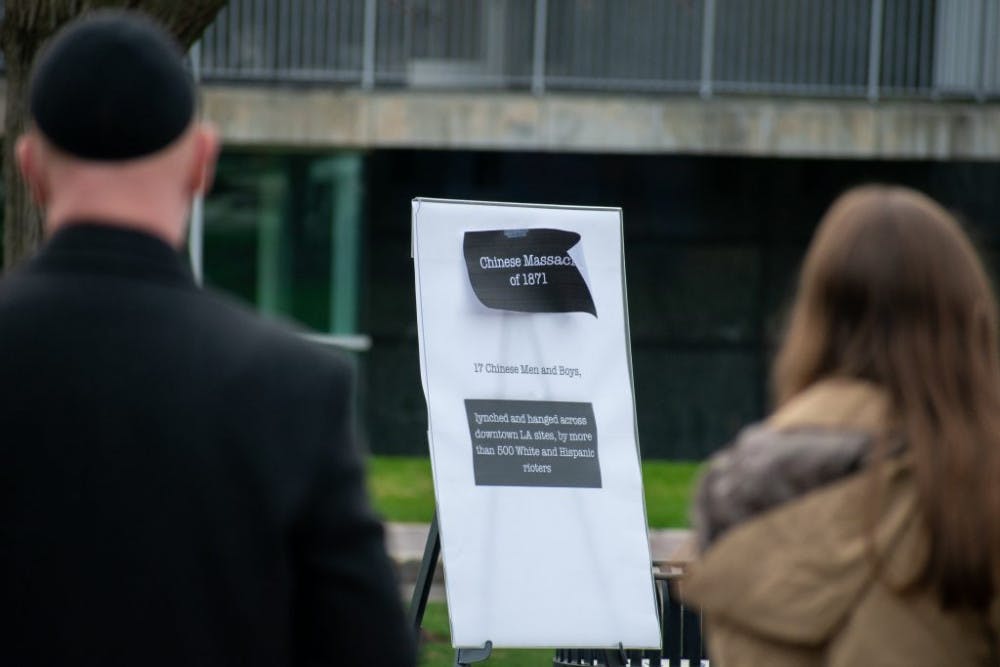
Organizers and students in the crowd used the time to come forward and share their thoughts about and personal experiences with anti-Asian bias in their lifetimes.
“I didn't realize how close it was to me until my 10-year-old cousin came up to me and said that he was scared to walk down the street,” Vo, a junior biology major, said, her voice cracking with emotion. “And to me, it's like an innocent child shouldn't be seeing all this and having this fear.”
Other students shared instances of discrimination that they and their families have faced in the last few months, some of which included strangers hurling slurs and confronting them on the street.
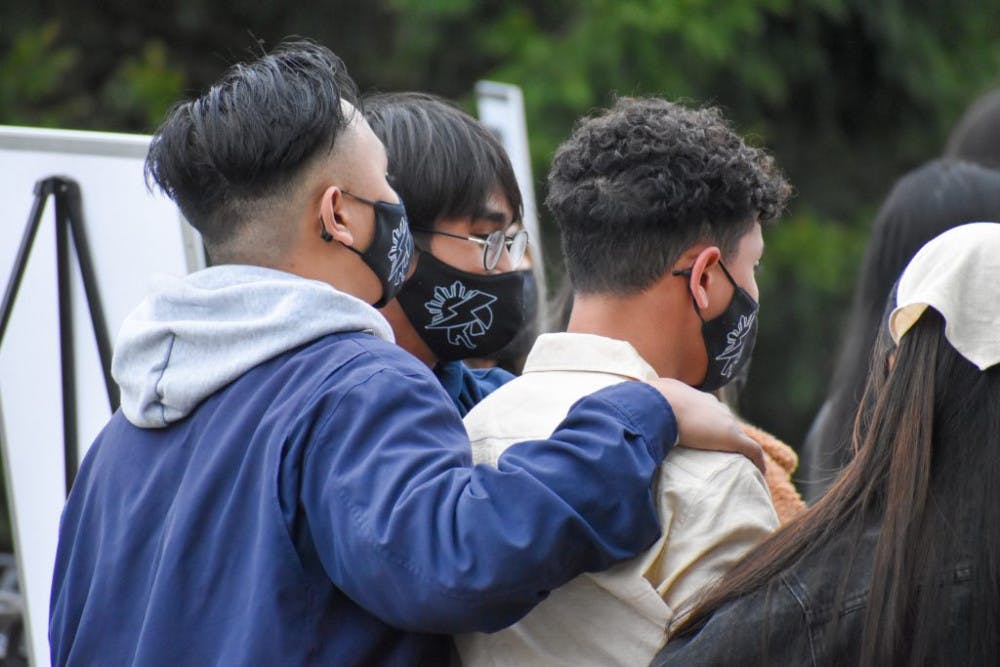
One student, who only identified himself as Cedric, noted that two weeks ago, on took a trip into New York City with a friend, he was approached by a man who shouted an anti-gay slur, telling him to “go back to your country, you Chinese [expletive].”
“When I went to New York, I knew I wasn't an easy target because I'm tall and I'm a man and I was with a white friend,” he said. “Right after I texted my sister, ‘If you ever go to New York, please be careful,’ because I realized honestly, I could have been attacked.”
Another student, who went by Dan, mentioned an incident that occurred a few months ago in which an employee at the big box store chain Target said “Ni hao,” a Chinese greeting, to him as he passed by.
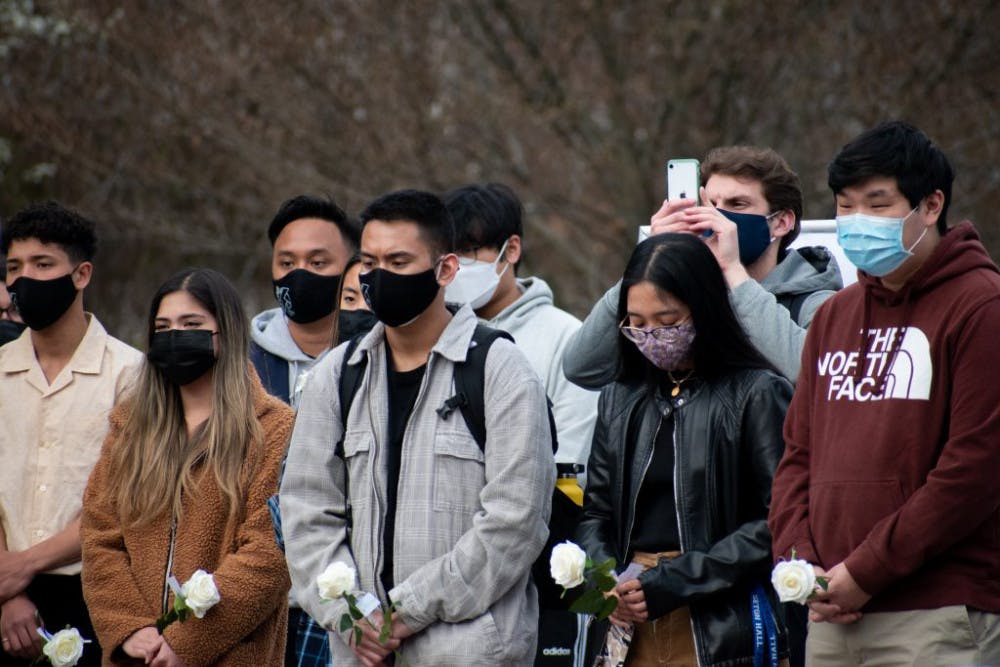
“I'm not Chinese. I'm Korean,” he said. “All the attacks and everything like that are really the things that are amplified in the media. But I think even just the little microaggressions and things that Asian Americans go through is really a big part, unfortunately, of the Asian American experience.”
Dr. Monica Burnette, associate vice president for the Division of Student Services, also spoke at the event, delivering a statement from the University’s Diversity, Equity and Inclusion committee while also sharing how the rise in anti-Asian violence has impacted her family.
“My family lives in California, and my mom has been very frightened to even just go out on her daily walks,” she said. “And when we see these attacks, especially on our elders, we think about moms, we think about Auntie's, our grandmothers who, whose families have immigrated here in search of the American dream.”
Burnette added that she also had her own experiences similar to those shared by students.
“Many of us have similar stories,” Burnette said. “Unfortunately, all of the microaggressions that all of you guys have faced, I've also faced those, too. So, I see you and I support you.”
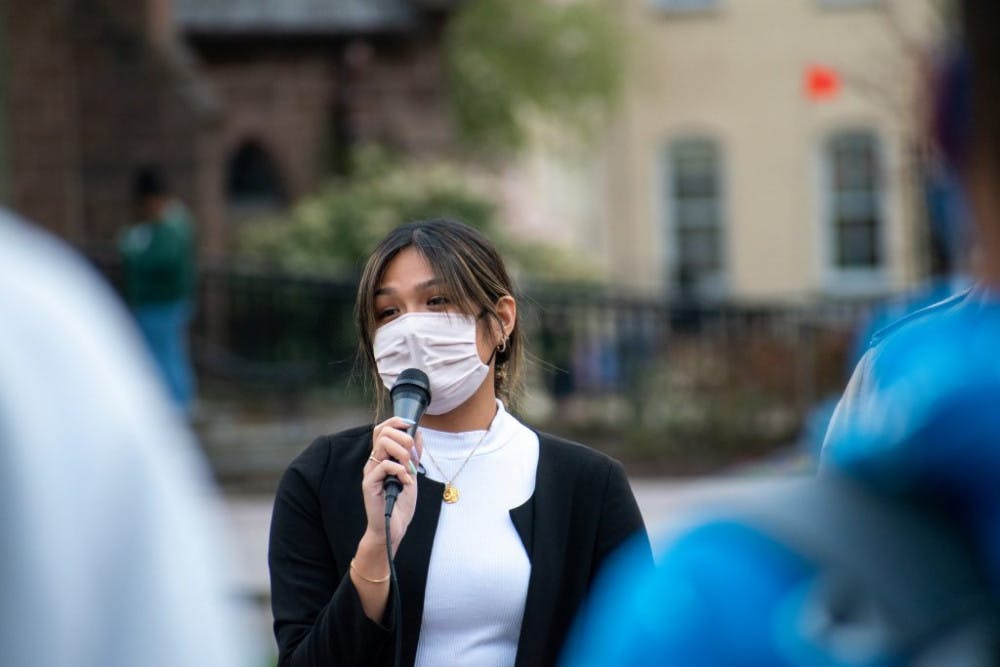
Toledo, one of the event organizers, noted the importance of having the vigil in person as a physical show of support for the Asian community during a year of primarily virtual activities on campus.
“Being the student leader I am, I can't just sit back,” she said. “Starting the conversation is like the most important thing, especially since almost everything is online we don't have that interpersonal connection anymore. Having this in-person event, it really digs deep that, you know, people show their support, they want to know about this, they want to acknowledge it.”
Nicholas Kerr can be reached at nicholas.kerr@student.shu.edu. Find him on Twitter @nickdotkerr.

